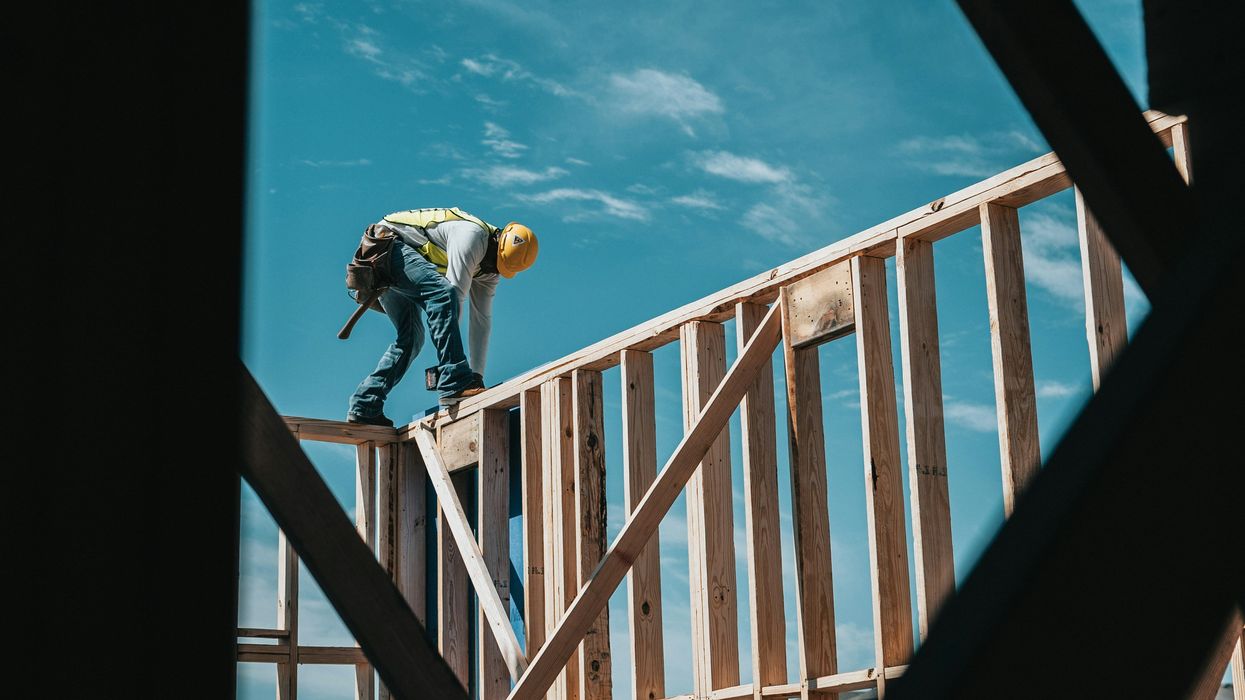The cost of lagging home construction is often measured in supply gaps and future market turns, but a new study from Altus Group for the Building Industry and Land Development Association (BILD) and the Ontario Home Builders' Association (OHBA) highlights the broader impacts of the Greater Toronto Area's (GTA) stalled pipeline, namely sweeping job loss and billions lost in investment.
According to the report, housing starts in the region could fall by more than 60% by 2027 if the necessary changes aren't made to address current obstacles to homebuilding. By 2029, this would look like just 4,000 single-family units and 10,000 apartment units completed in that year, reducing the total volume of construction activity from $6.7 billion to $1.9 billion and from $7.5 billion to $2.6 billion, for each respective unit type.
In the case that new home construction continues down its current path, the broader impacts to GTA residential construction jobs and the economy would be remarkable. The report finds that construction jobs would be cut by almost 50%, constituting some 41,000 jobs lost, and construction investment would fall by more than $10 billion.
KEY TAKEAWAY
- Altus projects a 60% drop in housing starts by 2027 and a $10 billion cut to construction investment by 2029.
But the damage isn't limited exclusively to the construction sector, as many related industries would be impacted by a lack of business. Altus calls these 'spin off jobs,' which includes suppliers to residential construction and jobs dependent on the pay cheques and spending of the spin off jobs, such as a server at a lunch spot near a construction site. These jobs would make up around 22,500 of the 41,000 axed positions.
But job loss, reduced investment, and stalled construction are just flotsam resulting from the real issue, which is plummeting new home sales. According to the report, 2025 will likely be the worst year for new home sales since Altus started keeping track in 2000, with single-family home sales and condominium apartment sales down 50% and 65% year to date, respectively, compared to 2024.
A Case For Rebates
The federal and provincial governments have begun to target these issues, with the feds tabling their First-Time Home Buyers’ (FTHB) GST Rebate to ignite sales and kickstart construction by shaving up to $50,000 off the purchase price of a new home for first-time buyers. However, many in the industry have been advocating instead for an expansion of the existing GST/HST New Housing Rebate to include all owner-occupier purchasers of new homes in order to strengthen the rebate's impact on construction — something Ontario Premier Doug Ford has said he would match at the provincial level.
According to calculations from real estate think tank The Missing Middle Initiative (MMI), if this were achieved, the price of a $900,000 Ontario home would drop to $800,000 overnight "setting off a housing construction boom."
“This one measure taken in tandem by the province and federal government can immediately lower housing costs, jump-start demand, and protect against future supply shocks that spike prices,” says Scott Andison, CEO of OHBA, in the Altus press release.
Andison also touches on worries around costs, as MMI estimates it would cost around $2 billion per year over six years ($12 billion), compared to the current cost of just $1.9 billion spread over six years for the FTHB GST Rebate. For the province, the think tank estimates a $1.472 billion annual cost, up from $577 million.
“Parking the generational equality and affordability issues, it's important to remember that the government cost estimates are province-wide and nationwide, with housing starts in the GTA being approximately 20% to 25% of the national average and 40% to 45% of the provincial average," he says. "That means for less than a billion dollars governments can protect at least 41,000 jobs, 23,000 annual starts, and over $10 billion in investment — with all the spinoff associated with that. If you extrapolate this across the province the impact is even greater; if this were any other industrial sector, this wouldn't even be a question.”
- Canadian Housing Starts Flat In May, At Lowest Level Since '09 In Ontario ›
- A ‘Delayed Turnaround’? Canadian Home Sales See First Gain Since November ›
- "Room To Be More Bold": Why We Need To Expand The FTHB GST Rebate ›
- May GTA New Home Sales Extend "Worst Downturn" On Record ›
- What The Toronto Real Estate Market Will Look Like This Summer ›




















